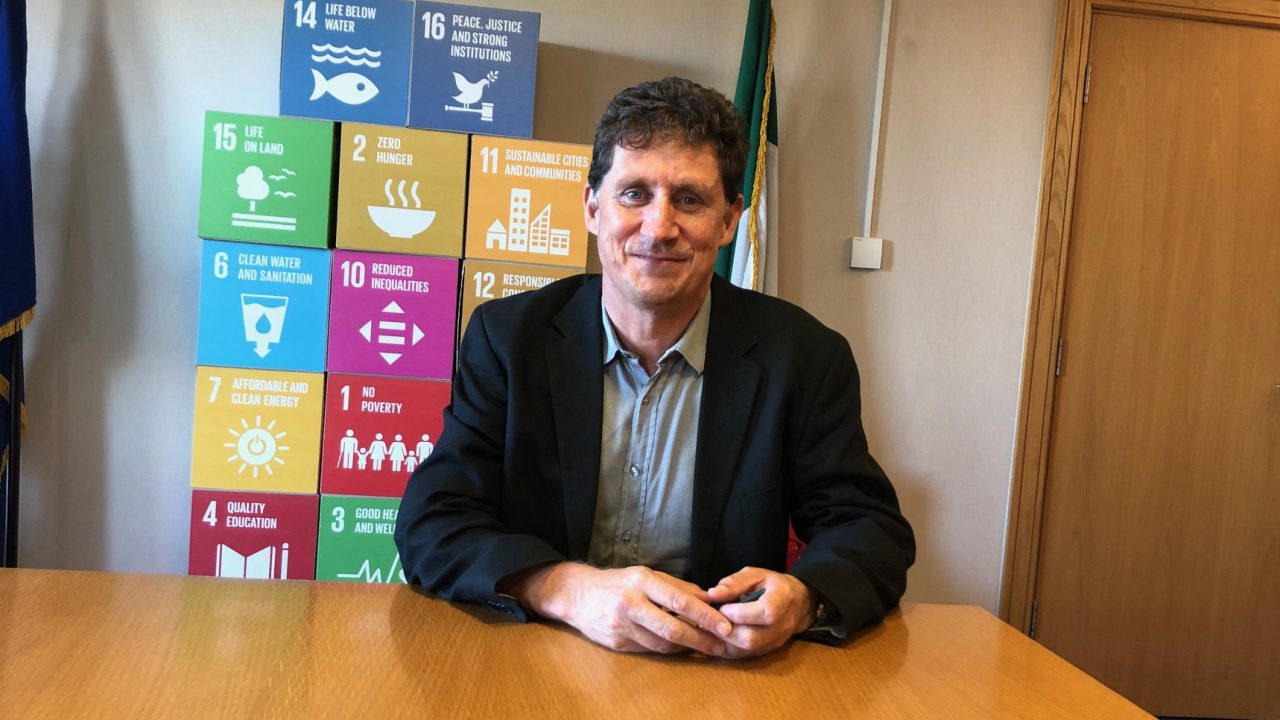If environment minister Eamon Ryan gets his way, he will destroy the goose that laid the golden egg – Irish agriculture.
His obsession for ‘calling out’ the industry on its emissions track record has now reached maniacal proportions.
He and his other ‘green’ friends are transfixed with the issue of emissions while, conveniently, overlooking the fact that agriculture is the one sector of the big three – transport, energy and farming – that has an inherent ability to sequester vast tonnages of carbon dioxide (CO2) on an annual basis.
All of this becomes even more farcical, given the recent news that the energy sector was the big culprit last year with industry emission levels having increased by a ‘whopping’ 17.6%. This increase was driven by a tripling of coal and gas usage.
Eamon Ryan and agriculture
But all of this is far from farcical. If Eamon Ryan has his way, he will hobble our greatest natural asset – Ireland’s ability to produce high-quality food on a sustainable basis.
But before I leave the issue of carbon budgets, let me highlight the very questionable approaches taken by the current government, when it came to addressing the climate change issue.
Chief among these was the pushing through of legislation that pays only lip service to agriculture’s true abilities, when it comes to sequestering vast amounts of carbon from the atmosphere.
Surely the first step that should have been agreed in this entire process was the undertaking of a comprehensive survey to find out just how much carbon Irish soils actually sequester on an annual basis.
The science has been available to allow this happen for many years. The fact that the work has not yet been carried smacks, I firmly believe, of an ‘anti-farming’ bias that permeates the ‘so-called’ green lobby and – let’s be honest – much of Ireland’s media .
Irish sustainability
I referred above to Irish farming’s ability to produce food on a sustainable basis. This premise is based on the fact that we are a rain-fed agriculture.
Water availability is the greatest constraint, and cost, associated with the production of food around the world.
All of the big international agri-food players, including the United States, Australia, Brazil and even New Zealand, are now dependent on irrigation to produce the crop yields they need.
This comes at a real cost, both in a real and environmental sense.
Here in Ireland, we don’t have to worry about any of this. Our climate is totally conducive to the growing of forages and grains in the most natural and sustainable way possible.
It turns out that the rain, which we all grumble about at times, is our greatest resource.
We are the envy of the world in this regard. So why should this amazing, food-producing resource be curtailed on the back of environmental policies that are, for the most part, based on supposition, not fact?
This is the fundamental question that I believe Eamon Ryan is always skirting around, never wanting to answer.
And, of course, if we don’t play our part in producing the food the world needs, other countries – many with very questionable commitments to climate change – will.
For their part, Irish farmers fully recognise their role as custodians of our environment. Yes, greenhouse gas (GHG) emission levels within agriculture must, and will, come down.
But farmers rightly point out that they are a fundamental part of the climate change solution. And they would like to hear the country’s environment minister endorsing this point on a regular basis.
Meanwhile, it could be argued that Eamon Ryan has become nothing more than part of the problem. So, perhaps, it’s time for him to move on.
